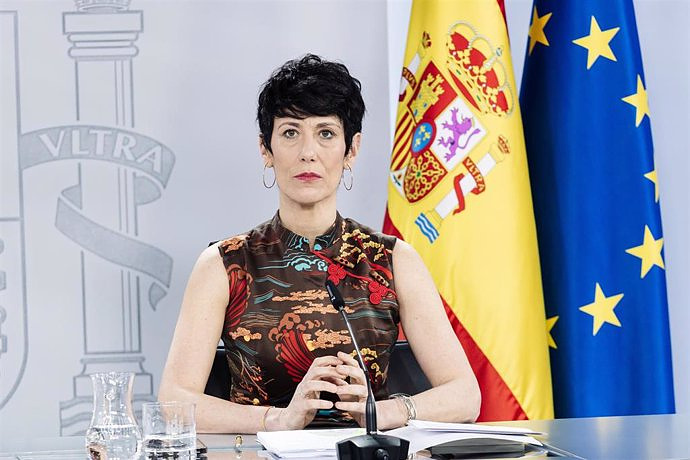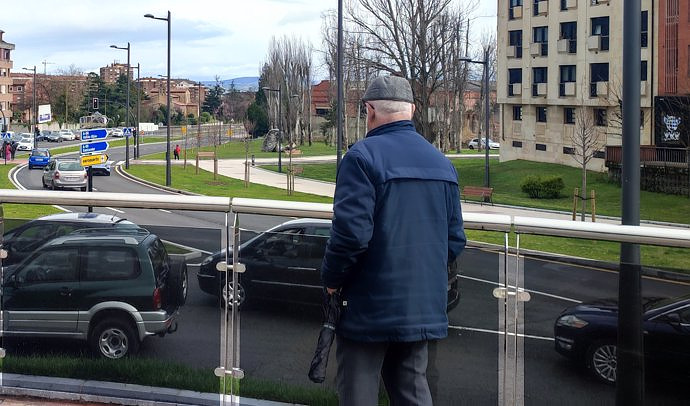'Heroes of the withdrawal' highlights the relevance for the Transition of the dissolution of ETApm thanks to the agreement between Rosón, Onaindia and Brandés
MADRID, 2 Oct. (EUROPA PRESS) -
The book 'Heroes of the withdrawal' investigates the dissolution of the political-military ETA and the role played, against the abandonment of violence, by the current coordinator of EH Bildu, Arnaldo Otegi, and other terrorists such as Francisco Javier López Peña, alias 'Thierry', who ended up assuming the military leadership of the gang until his arrest in 2008.
They were part of what was known as 'milikis', a score of irreducible people who agreed to ETA-military asking forgiveness for their past outside the 'hard faction', for which they committed seven attacks. It happened in the middle of the Transition, when the negotiation for the dissolution of ETApm was opening: the former Minister of the Interior of the UCD Juan José Rosón and the founders of Euskadiko Ezkerra Mario Onaindia and Juan Mari Brandés.
Otegi was one of those who signed a statement denying his past as a 'miliki' to record that he rejected the offer of social reintegration agreed with the Government of the time. "Among the so-called 'milikis' are Arnaldo Otegi and Thierry, who end up joining ETA-military, but first they demand two things from them: to carry out attacks, and they commit seven including the Laredo barracks with several injured children, and then ask for forgiveness" .
The explanation is offered by Gaizka Fernández Soldevilla, a researcher at the Memorial Center for Victims of Terrorism, who has coordinated the book 'Heroes of the withdrawal. The dissolution of political-military ETA' (editorial Tecnos) together with Sara Hidalgo García de Orellán, which highlights the "notable role within radical Basque nationalism" that both Arnaldo Otegi and Thierry later had, each from their level.
The book cites the internal struggles to seize the hideouts and weapons of those who abandoned violence. "The lack of funds made ETApm VIII Assembly, commanded by Josu Abrisketa (Txutxo) and Arnaldo Otegi, resort to the kidnapping of around half a dozen businessmen, who reported 302 million pesetas," they explain, citing Miren Elósegui, among others. , the only woman kidnapped by ETA in its entire history.
After a rescue by the Civil Guard, in 1983 the group led by Otegi --which was not arrested until 1987, in France-- made another decision on the terrorist scale: "claim the revolutionary fines in a very selective way", which They justified that it was very important "to recover a part of the surplus value that the bourgeoisie snatches from the working class."
Fernández Soldevilla recalls that terrorism killed 498 people between 1976 and 1982, more than half of all the murders committed in the bloody history of ETA. "Spanish society as a whole benefited from the end of ETApm," he maintains, although he goes on to add that the process cast shadows on the fatalities due to the impunity of a "disguised amnesty."
Between 250 and 300 'polimilis' were released or returned from exile under this process, and with the arrival of the PSOE to the Government in 1982, 44 pardons were approved. Sara Hidalgo García de Orellán, coordinator of the book, recalls these cases and proposes "restorative justice as a real possibility."
The book recalls that Onaindia's Euskadiko Ezkerra was electorally relegated by Herri Batasuna, although this historian's thesis is that "if the Transition came to fruition it was thanks to the slowdown in terrorist violence."
"The return home of the former polimilis not only made a number of experienced terrorists lay down their arms, but also demoralized their former comrades, many of whom ended up joining the withdrawal, and allowed the State Security Forces and Bodies focused on those who continued to kill," says Fernández Soldevilla.

 Exploring Cardano: Inner Workings and Advantages of this Cryptocurrency
Exploring Cardano: Inner Workings and Advantages of this Cryptocurrency Seville.- Economy.- Innova.- STSA inaugurates its new painting and sealing hangar in San Pablo, for 18 million
Seville.- Economy.- Innova.- STSA inaugurates its new painting and sealing hangar in San Pablo, for 18 million Innova.- More than 300 volunteers join the Andalucía Compromiso Digital network in one month to facilitate access to ICT
Innova.- More than 300 volunteers join the Andalucía Compromiso Digital network in one month to facilitate access to ICT Innova.-AMP.- Ayesa acquires 51% of Sadiel, which will create new technological engineering products and expand markets
Innova.-AMP.- Ayesa acquires 51% of Sadiel, which will create new technological engineering products and expand markets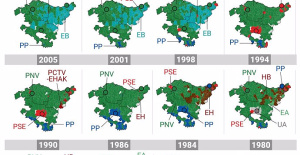 Historical results of the 2024 Basque elections, municipality by municipality
Historical results of the 2024 Basque elections, municipality by municipality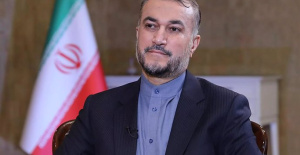 Iran assures that any action by Israel will have an "immediate and highest level" response: "They will regret it"
Iran assures that any action by Israel will have an "immediate and highest level" response: "They will regret it"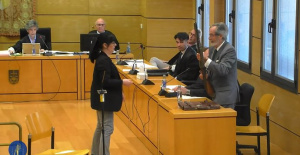 The Ciudad Real Court sentences the man who killed a thief with two shots in his home to 6 years
The Ciudad Real Court sentences the man who killed a thief with two shots in his home to 6 years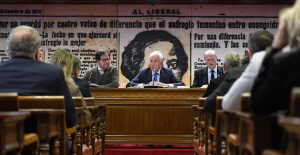 PP and PSOE clash in the Senate over Koldo's appearance after a socialist writing on a work plan
PP and PSOE clash in the Senate over Koldo's appearance after a socialist writing on a work plan How Blockchain in being used to shape the future
How Blockchain in being used to shape the future Not just BTC and ETH: Here Are Some More Interesting Coins Worth Focusing on
Not just BTC and ETH: Here Are Some More Interesting Coins Worth Focusing on Valencia displays its "innovative and technological potential" at the Emerge Americas event in Miami
Valencia displays its "innovative and technological potential" at the Emerge Americas event in Miami The CSIC incorporates the challenges of robotics, nanotechnology and AI in the new strategic plan for biomedicine
The CSIC incorporates the challenges of robotics, nanotechnology and AI in the new strategic plan for biomedicine Innovation allocates 9.1 million to train 74,000 people and guarantee digital inclusion
Innovation allocates 9.1 million to train 74,000 people and guarantee digital inclusion LIFE SPOT manages to develop new green treatments that eliminate groundwater contamination
LIFE SPOT manages to develop new green treatments that eliminate groundwater contamination A million people demonstrate in France against Macron's pension reform
A million people demonstrate in France against Macron's pension reform Russia launches several missiles against "critical infrastructure" in the city of Zaporizhia
Russia launches several missiles against "critical infrastructure" in the city of Zaporizhia A "procession" remembers the dead of the Calabria shipwreck as bodies continue to wash up on the shore
A "procession" remembers the dead of the Calabria shipwreck as bodies continue to wash up on the shore Prison sentences handed down for three prominent Hong Kong pro-democracy activists
Prison sentences handed down for three prominent Hong Kong pro-democracy activists ETH continues to leave trading platforms, Ethereum balance on exchanges lowest in 3 years
ETH continues to leave trading platforms, Ethereum balance on exchanges lowest in 3 years Investors invest $450 million in Consensys, Ethereum incubator now valued at $7 billion
Investors invest $450 million in Consensys, Ethereum incubator now valued at $7 billion Alchemy Integrates Ethereum L2 Product Starknet to Enhance Web3 Scalability at a Price 100x Lower Than L1 Fees
Alchemy Integrates Ethereum L2 Product Starknet to Enhance Web3 Scalability at a Price 100x Lower Than L1 Fees Mining Report: Bitcoin's Electricity Consumption Declines by 25% in Q1 2022
Mining Report: Bitcoin's Electricity Consumption Declines by 25% in Q1 2022 Oil-to-Bitcoin Mining Firm Crusoe Energy Systems Raised $505 Million
Oil-to-Bitcoin Mining Firm Crusoe Energy Systems Raised $505 Million Microbt reveals the latest Bitcoin mining rigs -- Machines produce up to 126 TH/s with custom 5nm chip design
Microbt reveals the latest Bitcoin mining rigs -- Machines produce up to 126 TH/s with custom 5nm chip design Bitcoin's Mining Difficulty Hits a Lifetime High, With More Than 90% of BTC Supply Issued
Bitcoin's Mining Difficulty Hits a Lifetime High, With More Than 90% of BTC Supply Issued The Biggest Movers are Near, EOS, and RUNE during Friday's Selloff
The Biggest Movers are Near, EOS, and RUNE during Friday's Selloff Global Markets Spooked by a Hawkish Fed and Covid, Stocks and Crypto Gain After Musk Buys Twitter
Global Markets Spooked by a Hawkish Fed and Covid, Stocks and Crypto Gain After Musk Buys Twitter Bitso to offset carbon emissions from the Trading Platform's ERC20, ETH, and BTC Transactions
Bitso to offset carbon emissions from the Trading Platform's ERC20, ETH, and BTC Transactions Draftkings Announces 2022 College Hoops NFT Selection for March Madness
Draftkings Announces 2022 College Hoops NFT Selection for March Madness

